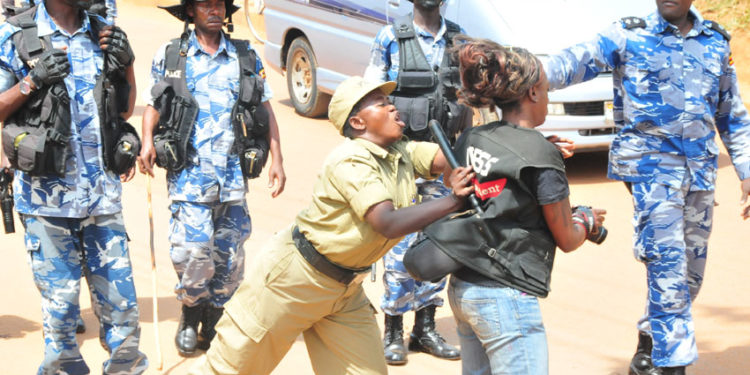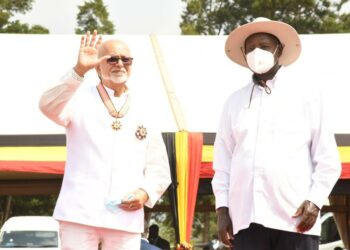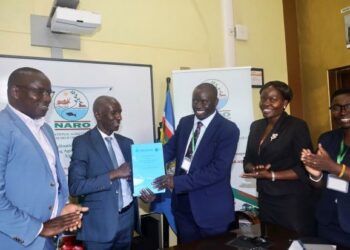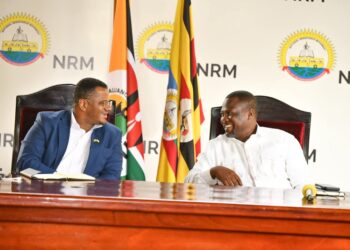By Fortunate Ahimbisibwe
Freedom or liberty means more than simply not being imprisoned or enslaved. It means having the right to act, speak and think as you choose, without oppressive restrictions imposed on you by others, including those in authority. It applies in your personal, family and social life as well as to your political views and in your economic transactions with others.
Freedom means that no obstacles are put in your way, and no restraints prevent you from acting as you choose. It means not being coerced, directed, threatened, intimidated, pressurised, imposed on, interfered with or manipulated by others. It means being able to get on with your life without being attacked, defrauded, robbed or harmed. That is so because the principle of freedom applies equally to everyone in a free society.
You may agree or disagree depending on where you stand, but like Mugisha Muntu says, sooner or later, injustice does not discriminate, it will find you where you are. Some Ugandans think that Uganda is under an oppressive regime that uses force to suppress dissent, typical of other African dictatorships. However, there is divided opinion. Others think Uganda is now a free society.
According to Freedom House report of 2018 Uganda is classified as Partly Free, it has moved from Not Free in 2017. That’s considered an improvement.
“While Uganda holds regular elections, their credibility has deteriorated over time, and the country has been ruled by the same party and president since 1986. The ruling party, the National Resistance Movement (NRM), retains power through the manipulation of state resources, intimidation by security forces, and politicized prosecutions of opposition leaders. Uganda’s civil society and media sectors remain vibrant, despite suffering sporadic legal and extralegal harassment and state violence,” the latest report says.
Some of the barriers to a free society:
1. Public Order Management Act of 2013: The archaic law restricts people’s freedom to hold assemblies. POMA gives police powers to stop a public meeting. Under section 5, an organiser is required to give notice in writing to the authorized officer of the intention to hold a public meeting, at least three days but not more than 15 days before the proposed date of the public meeting.
The law only asks one to notify police but it subsequently gives police room to find an excuse to stop your meeting. In a country where Police is controlled by the Executive, this law has been used to restrict freedom of assembly, a fundamental human right.
2. Media censorship: In a free and democratic society, media freedom is grounded on an overwhelming political consensus that a free press serves a fundamental public interest – speaking truth to power. And doing so without fear or favour …no matter how inconvenient it might prove for the powerful. Does this happen in Uganda? Again, depends where you stand. Andrew Mwenda is on record for quitting The Monitor newspaper because he said that Government was interfering in the editorial direction of the newspaper. He said the newspaper had lost its independence. The same newspaper has been shut down for weeks by the State.
3. Democracy and rule of law: A one man rule for 33 years cant be considered a democracy no matter how well you dress it with periodic elections every 5 years especially when rules have been changed to favour the incumbent. Opposition groups are hindered by restrictive party registration requirements and candidate eligibility rules, the use of government resources to support NRM candidates, a lack of access to state media coverage, state violence and harassment, and paramilitary groups that intimidate voters and government opponents.
4. Restrictions on Political mobilisation: Politicians that are a perceived as a threat are now allowed to mobilise around the country. The military and Police are used to harass opponents because these institutions are closely aligned with the regime.
5. Violations of human rights: One man spent spent Christmas in jail on account of a law that scrapped off the country’s legal system. Stella Nyanzi is in prison for just writing what she thinks, Kasese execution, Arua saga etc
6. Unexplained/unresolved murders: There are many high profile cases to show this scenario. AIGP Andrew Felix Kaweesi, DPC Kirumira, Abiriga, Moslem Sheikhs etc. Feel free to name them.
7. Inequitable distribution of resources, opportunities unfair competition for opportunities: Increasing unemployment has put pressure on the few jobs available, therefore, those who gets jobs have to use unconventional methods to get into work. This has increased nepotism and patronage.
8. Abuse of the Uganda Constitution: The Constitution serves the interests of one man and this changes from time to time, as and when it suits him. When Museveni wanted term limits removed, it was done, when he wanted age limit removed, it happened, whatever else he wishes that is in the constitution, it happens.
There are many cases of human rights violations, state sponsored violence, torture and State intimidation: You have seen how the military clobbers people during demonstrations. James Akena, of Reuters wasn’t spared in 2018.
Finally, state sponsored corruption and abuse of public resources: There is an increasing belief that some people are allowed to be corrupt and nothing happens. There is selective justice, for example, Sam Kuteesa whose name appears in every financial scandal gets away with it, all the time.
Most important is financial freedom. Poor people can’t be free…to be free is to be able to afford the basic needs of life. Economic freedom is the real freedom. Are you financially free? Is the Government helping you to achieve this? Again, it depends on which side of river you feed from. In spite of the gains, there is still a lot to be achieved.
Do you have a story in your community or an opinion to share with us: Email us at editorial@watchdoguganda.com












